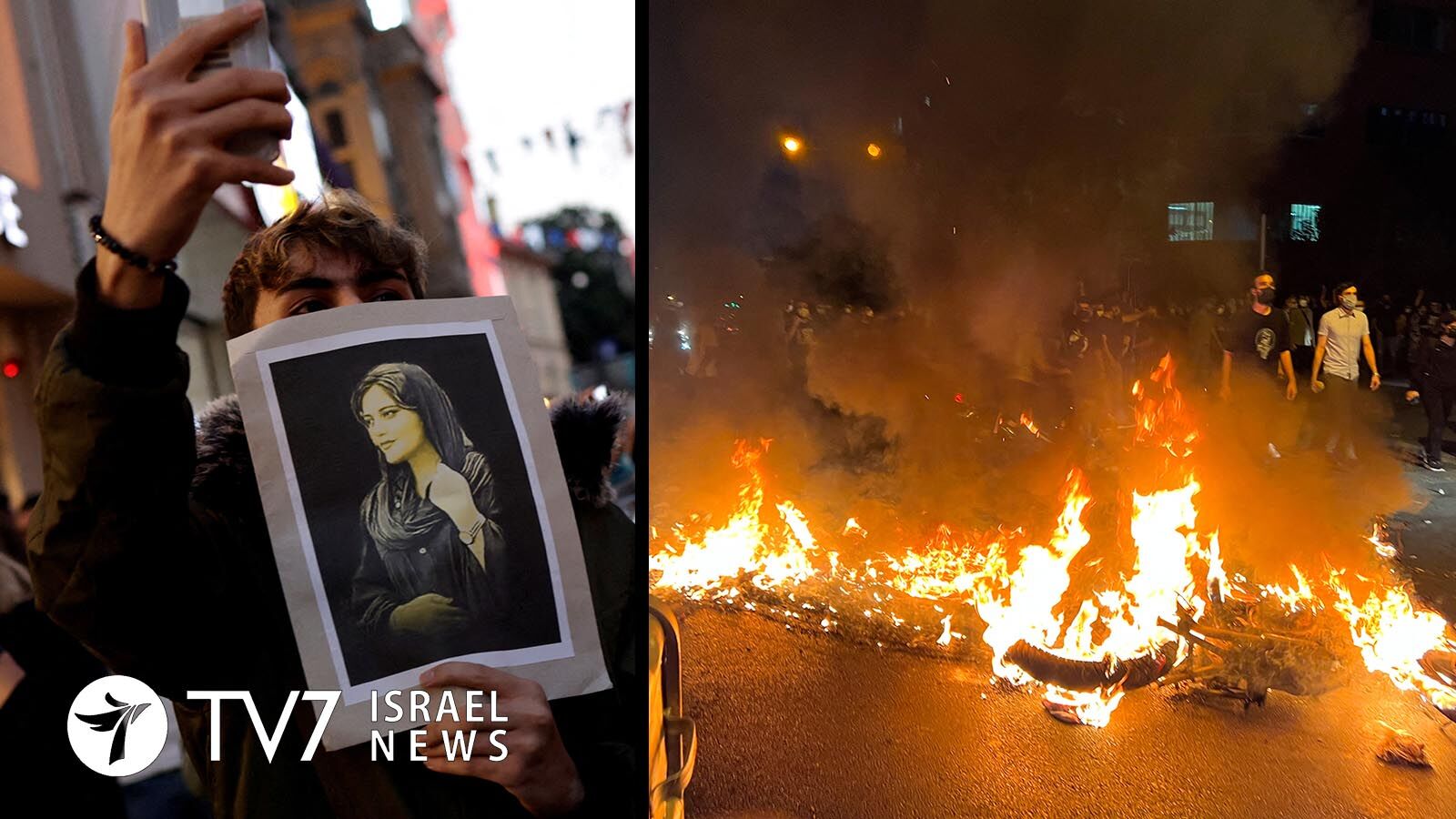There have been days of violent demonstrations over the death of a Kurdish woman while in police custody last week.
By Erin Viner
Five people were killed in the Islamic Republic’s Kurdish region on Monday when security forces opened fire during protests over the death of local resident Mahsa Amini.
Nationwide anger was ignited after the 22-year-old slipped into a coma and died following her arrest in Tehran last week by the “morality police,” who enforce Iran’s strict Islamic Sharia law. Women who fail to properly cover their hair or wear the loose-fitting hijab in public face fines or arrest as part of the hardline Ayatollah Regime’s crackdown on so-called “immoral behavior.”
Tehran Police Commander Hossein Rahimi claimed that Amini suddenly became ill but had suffered no physical harm and that officers had “done everything” to keep her alive. Earlier police statements said Amini had suffered a heart attack after being taken to the morality station to be “educated.”
Her relatives have denied she suffered any heart condition or any other pre-existing health problems. Amini’s father, who said bruises were evident during post-mortem examination, has openly held the police responsible for his daughter’s death.
In the nationwide condemnation of the incident, the Farsi (Persian) language hashtag of her name #MahsaAmini has appeared at least 2 million times on Twitter.
According to the Kurdish Hengaw Human Rights Organization, deadly force by security forces caused the deaths of two victims of gunshot wounds in ‘Amini’s hometown of Saqez; two others were killed in the town of Divandarreh “by direct fire” and the fifth was killed in the Dehgolan region. 75 people were injured on Monday, said Hengaw.
Videos posted on Twitter that cannot be authenticated by TV7 show footage of rioters hurling rocks while a male voice declares, “there is a war in Divandarreh.”
The wave of demonstrations sweeping the country also reportedly reached the capital and cities including Rasht, Mashhad and Isfahan.
Postings on social media included videos showing protesters chanting “Death to the dictator (Supreme Leader Ayatollah Ali Khamenei)” as drivers sounded their car horns to back protests in a Tehran square amid a heavy police presence.
“People throwing rocks have advanced against the police. Death to the dictator!” a woman can be heard sayin in Tehran on video posted by the 1500tasvir Twitter account. Images showed police cars with shattered windows as a nearby security forces’ vehicle fired water canon towards protesters. The site also published footage purported to be a protest at a Tehran university against the paramilitary Basij militia.
As during past protests, authorities appear to have restricted internet access to make it difficult for protesters to post videos. The NetBlocks site reported “a significant internet outage” in Tehran and “near-total disruption to internet connectivity in (the Kurdish provincial capital) Sanandaj” in connection to the demonstrations.
The international community has also condemned the suspicious death of the Kurdish woman.
“Mahsa Amini’s death after injuries sustained while in police custody for wearing an ‘improper’ hijab is an appalling and egregious affront to human rights,” said a spokesperson for the United States National Security Council. The statement stressed that, “Women in Iran should have the right to wear what they want, free from violence or harassment. Iran must end its use of violence against women for exercising their fundamental freedoms,” and demanded “accountability for Mahsa’s death.”
Echoing that statement, US Special Envoy for Iran Robert Malley tweeted, “Mahsa Amini’s death after injuries sustained in custody for an ‘improper’ hijab is appalling … Those responsible for her death should be held accountable.”
The French Foreign Ministry has called for a transparent investigation into “the violence that caused her death.”
The Amnesty International human rights group wrote on Twitter, “allegations of torture and other ill-treatment in custody, must be criminally investigated … All agents and officials responsible must face justice.”
Amini’s death is likely to further raise tension between the Ayatollah establishment and the Kurdish minority. Iran’s elite Islamic Revolutionary Guards Corps (IRGC) has stamped out unrest in the country’s Kurdish areas for decades, and many Kurdish activists have been sentenced to long jail terms or death.
Iran’s Kurdish minority is estimated to include eight to ten million people.
The current nationwide protests marks some of Iran’s worst unrest since street clashes erupted in 2019 over fuel price hikes and again in late 2021 over water shortages.
